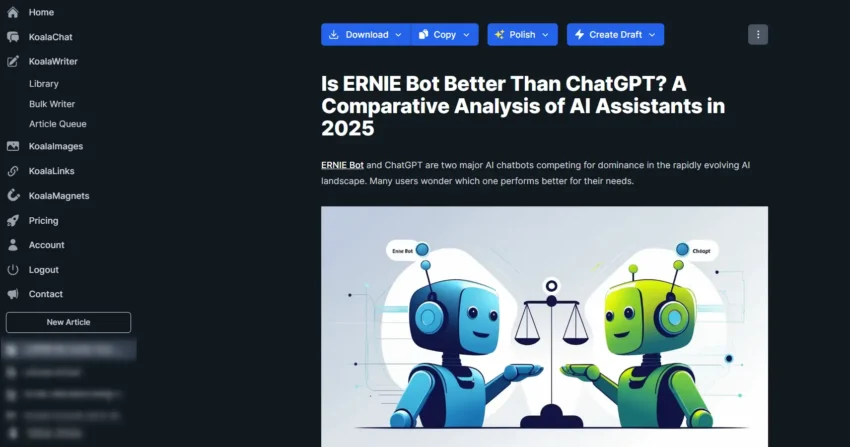AI engineering is a growing field that combines computer science, data analysis, and machine learning.
These professionals design AI models, write code, and implement solutions that can operate independently. They are responsible for developing algorithms and analyzing large datasets to find patterns and trends.
AI engineers require skills in programming languages such as Python, R, Java, and C++ to build and implement models.
They also need a strong understanding of data science and machine learning principles.
These skills help them create AI-driven solutions that can perform tasks automatically and adjust to new data over time.
AI engineers can earn a median salary of $136,600 per year by working in big tech companies or smaller firms that often offer higher wages to attract talent. They play a critical role in the tech industry, making significant contributions to various sectors, from healthcare to finance.
Who is an AI Engineer?
An AI engineer designs, develops, and manages artificial intelligence models. They use their skills in machine learning, data science, and programming to create systems that mimic human intelligence.
Roles and specializations
AI engineers wear many hats, often taking on various specializations.
They might focus on machine learning, developing algorithms that allow machines to learn from data. Others specialize in natural language processing (NLP), enabling machines to understand and respond to human language.
Engineers may also work with computer vision, teaching machines to interpret visual data. A large part of their job includes creating and refining algorithms to improve performance and accuracy.
They need to stay updated on the latest AI technologies and advancements to keep their systems cutting-edge.
Workplace and team dynamics
AI engineers often work in tech companies, research labs, or startups.
They collaborate with data scientists, developers, and product managers. This teamwork ensures that AI models and algorithms meet the needs of the project.
They might be part of a larger AI team or work solo, depending on the size and scope of the project. Communication skills are essential, as they must explain complex concepts in a way that non-experts can understand.
They also need to manage project timelines and adjust models based on feedback and testing.
Qualifications and skills required
Becoming an AI engineer requires a blend of education and a specific skill set. The goal is to merge technical abilities with the ability to solve complex problems.
Here’s a closer look at what this entails.
Educational background
AI engineers often start with a strong foundation in Computer Science, Data Science, or related fields. A bachelor’s degree can open entry-level opportunities, but many positions prefer or require a master’s degree.
Some areas of study to consider are Data Science, Cognitive Science, or Software Engineering.
Advanced degrees provide in-depth understanding and help in specializing. Courses in Machine Learning, Algorithms, Statistics, and Neural Networks are essential.
Online platforms such as Coursera offer specialized courses that can enhance knowledge and skills.
Technical and soft skills
AI engineers need to master certain technical skills to develop models and systems effectively.
Proficiency in programming languages like Python, R, Java, and C++ is essential. These languages help in building and implementing AI models.
Knowledge in data science tools and platforms like TensorFlow, PyTorch, and Hadoop is also vital. AI engineers should understand data structures, algorithms, and the ability to handle large datasets.
Soft skills are equally important. Critical thinking, problem-solving, and effective communication help in collaborating with team members and stakeholders. Creativity aids in developing innovative solutions.
The combination of technical know-how and these soft skills ensures the successful integration of AI systems into broader applications.
Career path and progression
AI Engineers have a dynamic and rewarding career path, with potential for significant professional growth. They start by mastering technical skills and gradually move into leadership roles with increased responsibilities.
Starting a career in AI engineering
Starting a career in AI engineering typically begins with gaining a strong foundation in key areas like mathematics, computer science, and programming.
Most AI engineers have at least a bachelor’s degree in a relevant field.
Courses in mathematics, data structures, and machine learning provide the necessary technical background.
Obtaining certifications can also be beneficial. Certifications from recognized institutions or platforms demonstrate specific skills and expertise.
Additionally, building a portfolio with projects and practical experience is crucial. Developing projects on platforms like GitHub, participating in hackathons, and contributing to open-source projects can showcase abilities to potential employers.
Internships and entry-level positions offer practical experience and industry exposure. These roles provide opportunities to work on real-world problems and collaborate with seasoned professionals.
Networking through online communities or local meetups can also open doors to job opportunities and mentorship.
Advancement opportunities
As AI engineers gain experience, numerous advancement opportunities become available.
With increased expertise, an AI engineer can progress to roles such as Senior AI Engineer or Lead AI Engineer. These positions involve leading projects, mentoring junior team members, and making strategic decisions.
Further along the career path, AI engineers can move into specialized roles. They can focus on areas like natural language processing (NLP), computer vision, or robotics.
Each specialization has its own set of challenges and rewards, often leading to more advanced positions within organizations.
Leadership roles are another avenue for advancement. Positions like Director of AI entail overseeing the entire AI strategy for an organization.
These roles involve aligning AI projects with company goals, managing teams, and ensuring the successful deployment of AI solutions. For example, the Director of AI oversees the overall AI strategy.
Continuous learning is vital for career progression. Attending workshops, earning advanced degrees, and staying updated with the latest research in AI can help engineers stay competitive.
Engaging in lifelong learning keeps skills relevant and enhances career prospects.
Salary expectations and job outlook
Artificial intelligence (AI) engineers can expect competitive salaries and positive job growth. Factors such as experience, location, and role type significantly influence compensation.
Industry salary trends
AI engineer salaries can vary widely. Entry-level positions typically start around $79,500.
Mid-level engineers with 3-5 years of experience can earn an average salary of $147,880 per year. Senior roles often command higher salaries, reaching up to $200,000 annually.
For more specific roles, like a Principal Machine Learning Engineer, salaries can go up to $145,503 per year. Leadership positions, such as Vice President of Machine Learning, can see salaries around $172,715. High demand for skilled professionals drives these competitive wages.
Here’s a comparison table of AI engineer salaries:
| Role | Typical Salary (Annual) |
|---|---|
| Entry-Level AI Engineer | $79,500 – $112,806 |
| Mid-Level AI Engineer (3-5 years) | $147,880 |
| Senior AI Engineer | $163,037 – $200,000 |
| Principal Machine Learning Engineer | $145,503 |
| Vice President of ML | $172,715 |
Factors influencing compensation
Experience and education level heavily impact an AI engineer’s salary. Advanced degrees or certifications often lead to higher pay.
The geographical location also plays a crucial role; salaries in major tech hubs like Silicon Valley or New York City can be significantly higher due to the cost of living and local demand.
Specific industries also influence compensation. For instance, AI engineers in finance or healthcare may earn more than those in academia. The type of AI role matters too. Leadership and specialized positions usually offer higher salaries.
Key influencers on AI engineer salaries:
- Experience: More years in the field generally lead to higher pay.
- Location: Tech-heavy areas often provide higher salaries.
- Industry: Finance, healthcare, and tech sectors typically offer top wages.
- Role Type: Specialized and leadership roles command premium salaries.
The job outlook for AI engineers is very promising, with strong demand projected to continue growing. This ensures that skilled AI professionals will likely enjoy both high salaries and job stability.
AI Engineer FAQs
Curious about what it takes to be an AI engineer?
This section addresses common questions about the day-to-day work, necessary skills, roles, responsibilities, salary, career prospects, and specialized areas of focus for AI engineers.
What does the day-to-day work of an AI engineer typically involve?
AI engineers work on developing and implementing algorithms. Their tasks may include coding, testing AI models, and analyzing large datasets.
They often collaborate with data scientists and software developers to integrate AI solutions into broader systems.
What are the fundamental skills necessary for a career as an AI engineer?
Key skills include programming, especially in languages like Python and Java, knowledge of machine learning techniques, and proficiency in data science.
Familiarity with deep learning frameworks, such as TensorFlow, is also important. Analytical skills and problem-solving abilities are essential.
Can you outline the essential roles and responsibilities of an AI engineer?
AI engineers design and develop AI models. They analyze large datasets to identify trends and patterns, create and maintain databases, and ensure the AI models are accurate and efficient.
Collaboration with other tech professionals to integrate AI into systems is also a significant part of their role.
How does the salary of an AI engineer compare within the tech industry?
AI engineers generally earn higher than many other tech positions due to the specialized skills required. According to the US Bureau of Labor Statistics, the median software engineer salary is $136,600 per year.
AI engineers often earn more, especially at top tech companies.
What are the career prospects and job outlook for AI engineers?
The demand for AI engineers is growing rapidly. AI technology is becoming integral in various industries, from healthcare to finance.
This increase in demand translates to strong job prospects and opportunities for career advancement.
What areas of expertise should an AI engineer focus on to excel in their field?
AI engineers should focus on machine learning, deep learning, and data analysis.
Developing expertise in natural language processing (NLP) and computer vision can also be beneficial.
Staying current with the latest AI research and trends is essential for continuous growth in this field.












